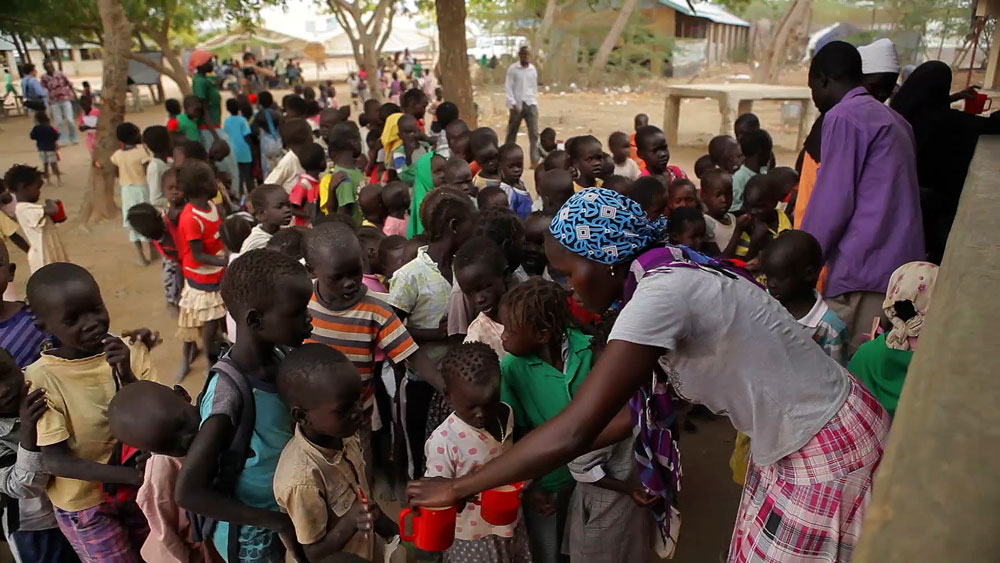To coincide with World Refugee Day, we look at “Warehoused” directed by Asher Emmanuel and Vincent Vittorio premiering globally with free screenings around the world today (June 20th).
“Warehoused” takes audiences to Dadaab, Kenya–home to the world’s largest refugee camp and, as of April 2017, approximately 250,000 registered refugees.
Seeking to educate on the conditions of the camp, the personal stories of those living there, and featuring commentary from UN refugee agency workers, the film provides an informative and often moving look at an area of the world where displacement can last for decades and to be a protracted refugee, stuck in a state of limbo, might as well mean to be forgotten.
The film doesn’t feature a broad range of interviews with refugees at the camp but primarily focuses on the journey of one man, Liban, who lived at the camp for over 20 years. His story is powerful and integral to the film’s narrative, which without, “Warehoused” would simply be a film of facts and figures.
Liban is well-acquainted with the world of documentaries, having made his own film called “Welcome to Dadaab” as well as having starred in and worked on the multimedia documentary project “Dadaab Stories.” He shines throughout “Warehoused” and as the film progresses it becomes clear that directors Emmanuel and Vittorio were very lucky to meet him at this point in his journey.
If you’re expecting to see a lot of Dadaab in “Warehoused,” you won’t. The art of “showing not telling” about the camp runs light as most of the screen time is dominated by either interviewees or illustrations.
While you will see some select scenes of Dadaab, primarily of a school, shanties, or of relief operations, it is clear that filming was tightly controlled, though this shouldn’t be too surprising and is also not the fault of the filmmakers who were upfront about the restrictions they faced while shooting.
For what it lacks in its scenes of Dadaab, the film, thanks to the excellent editing work of Emmanuel and the indispensable insight of Liban and the humanitarian workers, is a well-rounded introductory narrative with a rewarding and powerful personal ending from the front-lines of a crisis and camp with no closure in sight.


